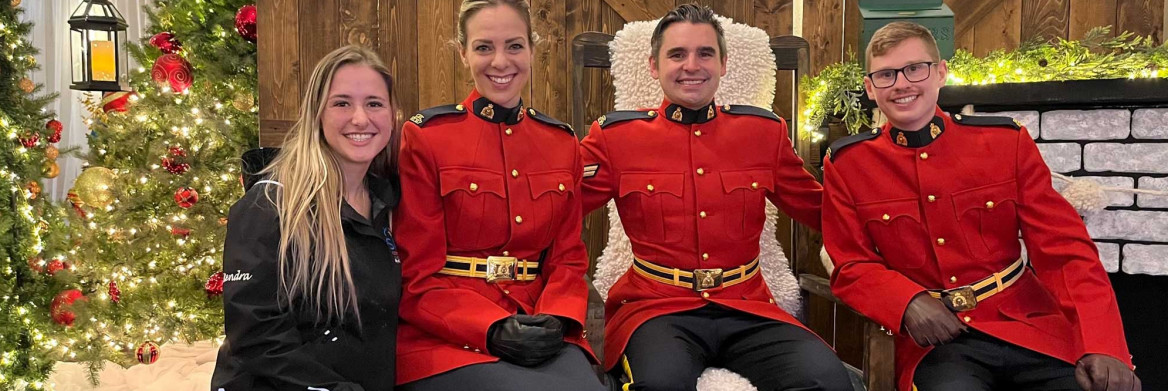With nearly 36 per cent of its residents identifying as visible minorities, Brooks was once referred to as "the city of one hundred hellos.
" Now, a new community policing unit in the Alberta town is helping the RCMP forge connections with the culturally diverse population.
In the past two decades, the city got an influx of refugees to work in the local agriculture industry from East Africa, the Philippines, Latin America and South Asia – regions of instability where the police isn't always a positive presence.
"Upward of one hundred different languages are spoken in the community at a given time,
" S/Sgt. Gordon Yetman, detachment commander in Brooks.
"We want to get the message out to our community that we're approachable, we're here to help and we want people to come to us if they're in a crisis or they're experiencing an emergency,
" says Yetman.
Reaching out
The Community Policing Unit (CPU) works with local immigration services to introduce new residents to police officers and other first responders and help them feel more comfortable with the RCMP's presence in the area.
"People sign up to check out our police cars and fire trucks,
" says Kendra Sieben, a trained social worker and Safe Communities Facilitator with the CPU. "They're very quiet at the beginning and smiling by the end.
"
As part of its focus on making positive connections, providing education and supporting crime prevention, the CPU is regularly spotted at hockey games and farmers' markets, and meeting rural areas.
"For us to be successful in community policing, we need to be routinely seen in areas that you wouldn't normally think of police,
" says Cpl. Josh Argue, a member of the CPU in Brooks, who spoke with the Gazette while setting up for a Halloween event. "We can answer questions people wouldn't bring up if they didn't have a casual opportunity to ask them.
"
One CPU officer works primarily with local schools and the entire team regularly visits schools to meet with youth, deliver public safety presentations and say hello.
"Police officers want to get into schools and interact with the kids, but when there are calls coming in they're busy,
" says Argue. "We have time to consistently show up and when you're consistent, they know your name and they're going to know police are here for a good purpose.
"
A digital presence
An online presence on social media is also helping the CPU engage with residents. The Unit regularly provides updates and offers presentations, such as reading storybooks or doing Q&As on the Brooks Safe Communities page on Facebook and TikTok. The unit has nearly 115,000 followers to date.
On one occasion, residents approached CPU members at a farmer's market explaining that an elderly relative with medical issues had gone missing. Officers collected information, opened a missing persons case and shared a post on Facebook asking for leads. Soon, a tip came in and officers found the man along a dead-end rural road almost 10 kilometers out of town. They returned him home before sunset that same day.
"The caller said he wouldn't have known to make a report if he didn't see our post,
" says Sieben, the social worker.
When in-person events slowed during the pandemic, officers connected with the public virtually. As part of the community consultation process, Yetman answered questions from residents live on Facebook.
"When people think of community policing, it's just officers walking around and saying hello, but it's so much more than that,
" says Argue. "It's building trust between the community and the police.
"
